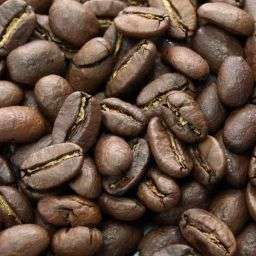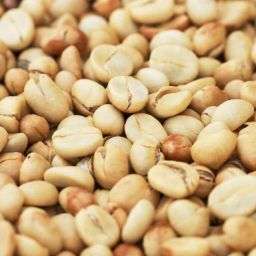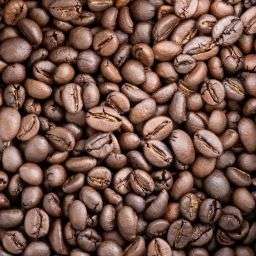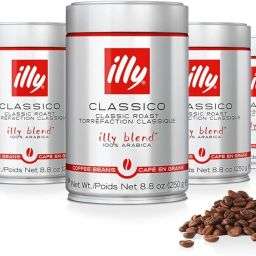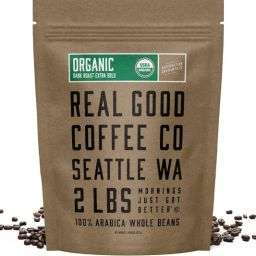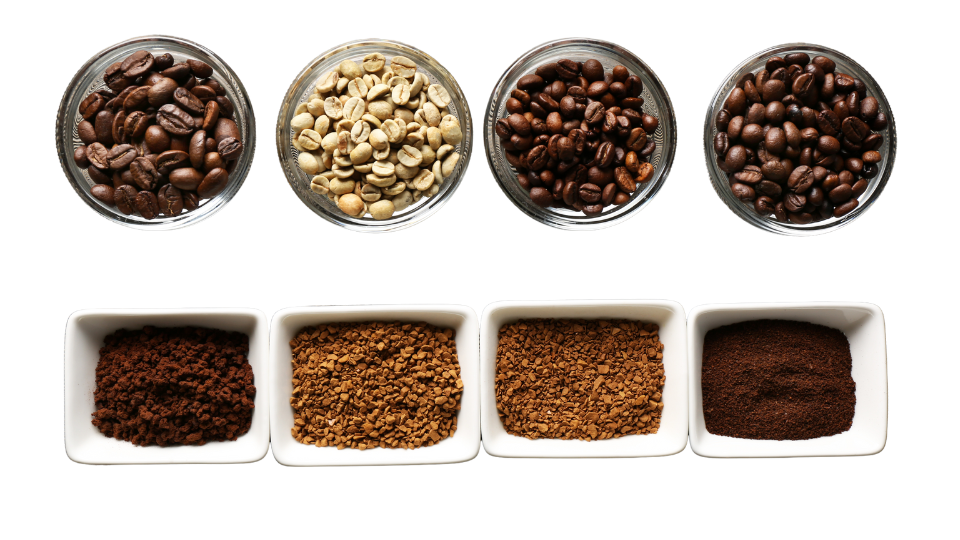
The global coffee culture has evolved into a rich tapestry that reflects the diverse preferences and traditions of coffee drinkers worldwide. Central to this culture is the recognition of the pivotal role that the origin of coffee beans plays in defining the taste and quality of the coffee experience.
The unique environmental conditions of each coffee-producing region, including soil type, altitude, and climate, impart distinctive flavors and aromas to the beans, crafting a diverse palette of coffee experiences that cater to every palate.
Renowned Coffee Beans By Country
Colombian Coffee
Colombian Supremo coffee beans are celebrated globally for their exceptional quality, characterized by a smooth and rich flavor profile. The ideal growing conditions in Colombia, marked by high altitudes and volcanic soils, foster the development of these Arabica beans, yielding a well-balanced cup with medium acidity.
The flavors of caramel, chocolate, and citrus are prevalent, offering a delightful taste experience that is both invigorating and harmonious.
Indonesian Coffee
Indonesian Kopi Luwak stands out in the coffee world for its unique production process. The beans are famously processed through the digestive system of civet cats, which imparts a distinct and smooth flavor profile with remarkably low acidity. Despite its controversial production and high cost, Kopi Luwak remains a sought-after delicacy among coffee aficionados, prized for its rarity and unusual origin story.
Ethiopian Coffee
Ethiopia, often regarded as the birthplace of coffee, offers the exquisite Yirgacheffe variety. Grown in the highlands, these beans are known for their floral, fruity, and tea-like notes. The washed processing method enhances their bright acidity and clean taste, producing a vibrant cup with hints of citrus, berries, and jasmine. Ethiopian Yirgacheffe coffee beans are a testament to the country’s rich coffee heritage, delivering a unique and refreshing experience.
Jamaican Coffee
Jamaican Blue Mountain coffee is revered among coffee connoisseurs for its exceptional quality and distinctive flavor. The Blue Mountains of Jamaica provide an ideal microclimate for coffee cultivation, resulting in beans that produce a smooth, mild brew with nuances of chocolate and nuts. Despite its premium price, Jamaican Blue Mountain coffee remains a highly sought-after variety, offering a taste experience that is both refined and luxurious.
Brazilian Coffee
Brazilian Peaberry coffee beans are renowned for their smooth and mellow flavor, with subtle hints of hazelnut and raspberry. This particular variety is appreciated for its round, complex taste profile that distinguishes it from other beans, making it a favorite among those who prefer a less acidic cup. The beans are primarily grown in the southern state of Minas Gerais, known for its ideal coffee-growing conditions, and are Rainforest Alliance certified, ensuring sustainable farming practices.
Vietnamese Coffee
Vietnam, a powerhouse in coffee production, is celebrated for its Strong Dark Roast Robusta coffee. This variety embodies a bold, yet sweet flavor profile that is unmistakably robust. The unique roasting process, often involving rice wine, salt, and butter, imparts a slightly oily texture and enriches the coffee with a blend of flavors that complement the natural taste of Robusta beans. This method showcases Vietnam’s innovative approach to coffee production and its status as a global leader in Robusta output.
Guatemalan Coffee
Guatemala’s Antigua Volcanic coffee beans are lauded for their sophisticated and intense taste, with a refined aroma that hints at smoke due to the region’s frequent contact with ocean winds. The unique volcanic soil and climatic conditions of the Antigua region contribute to a coffee that is both tart and rich, offering a cup with pronounced acidic tones and a complex flavor profile. This variety stands out for its depth and elegance, reflecting the rich coffee cultivation heritage of Guatemala.
Costa Rican Coffee
Costa Rican coffee is characterized by its smooth, soft texture and rich walnutty flavor, a result of the beans’ growth on the fertile volcanic soils of the country. This coffee is often wet-processed, which contributes to its well-rounded profile, making it a classic choice for those who appreciate a balanced and aromatic cup. The most famous varieties, such as Margarita and Cashier, showcase the nuanced tastes and high quality that Costa Rican coffees are known for.
Yemeni Coffee
Yemen’s Arabian Mocha is distinguished by its chocolaty flavor and slight wine notes, a testament to the country’s ancient coffee cultivation practices. Grown in the mountainous regions of Yemen, this coffee bean variety offers a unique taste profile with small, irregularly shaped beans that are deeply rooted in Yemen’s coffee history. The Arabian Mocha’s rarity and distinctive taste make it one of the world’s most sought-after coffees, embodying the rich heritage of coffee production in the Arabian Peninsula.
Kenyan Coffee
Kenyan AA coffee beans are celebrated for their bright acidity and rich flavor profile, attributes that have positioned Kenya as a leading coffee producer. These beans undergo meticulous grading for size and quality, ensuring only the finest make it to market. The high altitudes and fertile soils of Kenya’s coffee-growing regions contribute to the beans’ distinct taste, characterized by notes of fruit and berry, making Kenyan coffee a favorite among those seeking a vibrant and flavorful cup.
Factors Influencing Coffee Quality
The quality of coffee is significantly influenced by three primary factors: elevation, soil type, and processing methods. Elevation affects temperature and growing conditions, with higher altitudes often leading to denser beans and more complex flavor profiles.
Soil type can impart various flavors to the coffee, with volcanic soil being particularly prized for its mineral-rich composition that enhances bean quality. Processing methods, whether washed, natural, or honey-processed, play a crucial role in determining the final taste, aroma, and acidity of the coffee, highlighting the importance of post-harvest practices.
How to Choose the Best Coffee Beans
Selecting the best coffee beans involves understanding your flavor preferences and the impact of roasting on taste. Light roasts retain more of the bean’s original character, highlighting acidity and floral notes, while dark roasts offer richer, bolder flavors. Consider the bean’s origin, as different regions impart distinct flavor profiles, from fruity African beans to nutty South American varieties. Pay attention to freshness, opting for beans roasted within the past month, and consider the processing method, as it can significantly affect flavor and body.
FAQs
What makes a coffee bean ‘the best’? The ‘best’ coffee bean is subjective and depends on personal taste preferences. However, factors such as the bean’s origin, elevation, soil type, and processing method contribute to its quality and flavor profile.
How does processing affect flavor? Processing methods can dramatically alter a coffee’s taste. Washed coffees tend to have cleaner profiles with higher acidity, while natural or dry-processed coffees exhibit sweeter, fruitier flavors. The honey process, which removes some but not all of the fruit before drying, can result in a balance of sweetness and acidity.
Final Thoughts
The journey to discovering the best coffee beans is deeply influenced by the beans’ origin, revealing the importance of geographic and environmental factors in shaping coffee quality and flavor diversity.
Each region offers a unique taste experience, driven by elevation, soil, and processing. Recognizing these elements enables coffee enthusiasts to explore and appreciate the rich tapestry of global coffee culture, fostering a deeper connection to the beans and the stories they hold.


